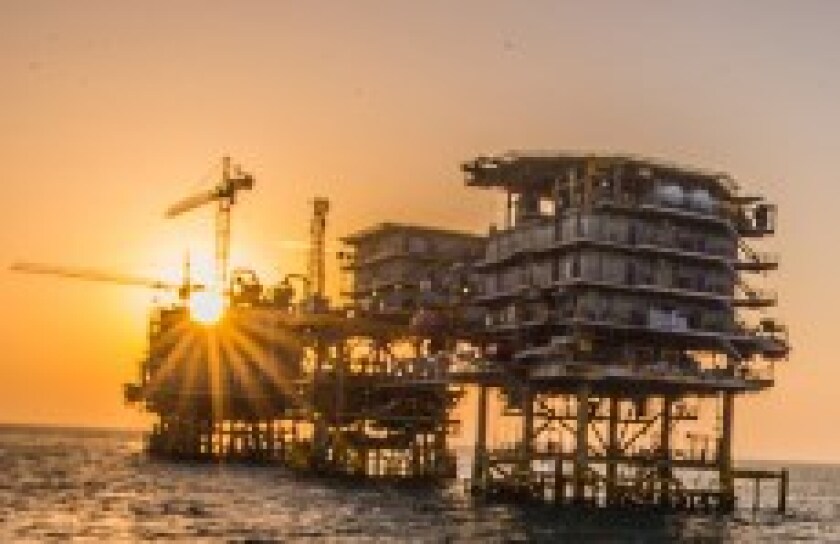Is the prospect of a Saudi Aramco IPO a boon or a curse for equity capital markets?
The answer, of course, is a boon. The market exists to take companies public and raise capital for them from international investors. Banks will want to lead manage it and many investors will be very interested in taking a look at this unique asset, even if they end up passing on the opportunity. No believer in capital markets could wish the deal away.
But the blessing is not unalloyed. As has been widely noted, it would be a very difficult deal to do. The declaration by Saudi Arabia’s deputy crown prince, Mohammad bin Salman, last week that the state was considering an IPO of its national oil company took the world by surprise, including, it appears, some senior managers at Aramco.
This one company’s strategic importance to Saudi Arabia is unparalleled in any other major economy, so many believe an IPO of the main company itself, which holds the oil reserves, simply will not come to pass. The whole legal and tax status of Aramco would have to be reformed, and its many side operations, such as funding parts of public expenditure, disentangled from the Saudi state.
Remarks on Monday by Khalid al-Falih, Aramco’s chairman, lend further weight to the idea that an IPO of the top company is being considered and could be carried out, despite the difficulties.
Of course, there is plenty of precedent for sellers retaining control over trophy companies through dual class share structures or golden shares. Corporate governance specialists dislike these arrangements, but investors usually go along for the ride.
These structures, however would not bypass the mountain of legal work required to make Aramco floatable.
Sledgehammer/nut
Would it be worth the hassle? Arguably, only if Saudi Arabia’s real purpose was to reform governance at Aramco. But since the state wholly owns the business, and surely wants to retain control, could it not sort out any governance weaknesses itself?
If the main point of the IPO is to raise money, Aramco has more than enough refining and other downstream operations around the world that could be spun off more easily and sold.
GlobalCapital reported this week that Aramco and joint venture partner Sinopec were seeking a tightly priced loan for their Yasref refinery.
Estimates put the downstream assets as worth $100bn or more, even counting just overseas assets.
The world’s 10 largest IPOs to date have all raised between $15bn and $25bn, the biggest being Alibaba’s in September 2014. One could just about imagine that being doubled, if Saudi Arabia was desperate for a large sum of money quickly — especially if it did something really innovative like listing in Riyadh, New York and Hong Kong all at once.
So, for pure money-raising purposes, there seems little point attempting an IPO of the top exploration and production company at this stage, since there is more lower hanging fruit to sell than investors could possibly buy.
However, company sellers, especially governments, have all kinds of reasons for floating companies that go beyond their most obvious financial interests.
No shower of gold
Despite the potential huge size of the deal, it will not mean Croesus opens his wallet and pours it into investment bankers’ hands.
Fees are likely to be infinitesimal. Total expenses for the $6bn flotation of Saudia Arabia’s National Commercial Bank, which HSBC helped to lead in 2014, and which was the largest IPO in EMEA that year, were 11bp or $6.6m, according to the prospectus.
Despite that, any leading ECM bank without a specific reason to avoid the deal is likely to want to be on it, just for the status and league table credit the mandate would bring. "Everyone will position furiously," said one head of ECM. "If it happens on the basis on which it has been mooted, it will be the biggest event ever. People will be finding an angle, trying to find a role that fits what they can deliver."
The glamour of the deal, and the vagueness of the plans at this stage, are a dangerous combination for the ECM world.
Banks’ teams of experienced deal-winners are not that big. There is a risk that firms put huge amounts of effort this year into winning the Aramco mandate — a deal that seems very unlikely, in whatever form, to come to fruition before 2017. Straining every sinew to win the deal would mean diverting resources from trades that could more realistically be completed in 2016. The shadow of the deal could, at worst, diminish issuance this year.
What to wish for
Therefore, from the perspective of the ECM world, the outcome to pray for is the following. The Saudi government launches a beauty parade as soon as possible. After two months, it chooses perhaps three top tier international banks to advise it, plus a couple of local players. They then work with the government and Aramco for the next year to work out what to do.
Meanwhile, the rest of the ECM world is freed up to get on with other business. Even the winning banks will find the burden far more manageable once the mandate is won, and they can assign the right people to it. When the deal is ready, more banks can be brought in to help with the marketing and sales.
However, asked if this was likely, one banker said: "Have you been to Saudi Arabia? That is probably wildly unrealistic."
If a deal does eventually come, the market can enjoy this fascinating test of how keen investors are to buy in to a very large oil asset — downstream or upstream — at this critical time in the industry’s evolution.
Oil prices are below financial crisis levels, partly because of Aramco’s actions. Will they ever rise again, when the world needs to move away from fossil fuels? This IPO will ask investors to stake billions on the answer.

